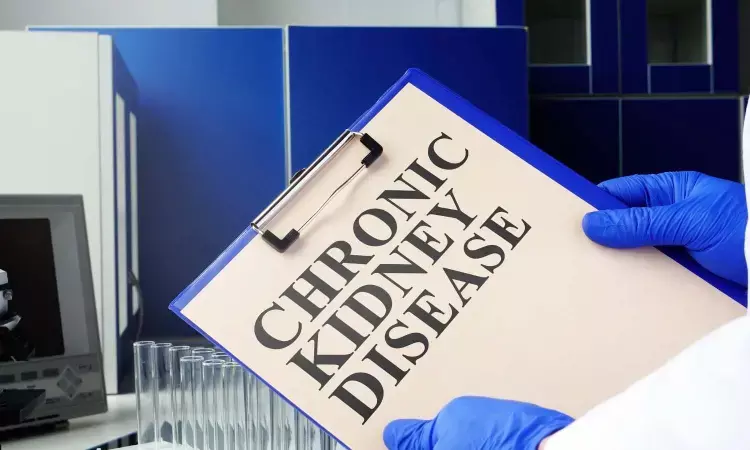- Home
- Medical news & Guidelines
- Anesthesiology
- Cardiology and CTVS
- Critical Care
- Dentistry
- Dermatology
- Diabetes and Endocrinology
- ENT
- Gastroenterology
- Medicine
- Nephrology
- Neurology
- Obstretics-Gynaecology
- Oncology
- Ophthalmology
- Orthopaedics
- Pediatrics-Neonatology
- Psychiatry
- Pulmonology
- Radiology
- Surgery
- Urology
- Laboratory Medicine
- Diet
- Nursing
- Paramedical
- Physiotherapy
- Health news
- Fact Check
- Bone Health Fact Check
- Brain Health Fact Check
- Cancer Related Fact Check
- Child Care Fact Check
- Dental and oral health fact check
- Diabetes and metabolic health fact check
- Diet and Nutrition Fact Check
- Eye and ENT Care Fact Check
- Fitness fact check
- Gut health fact check
- Heart health fact check
- Kidney health fact check
- Medical education fact check
- Men's health fact check
- Respiratory fact check
- Skin and hair care fact check
- Vaccine and Immunization fact check
- Women's health fact check
- AYUSH
- State News
- Andaman and Nicobar Islands
- Andhra Pradesh
- Arunachal Pradesh
- Assam
- Bihar
- Chandigarh
- Chattisgarh
- Dadra and Nagar Haveli
- Daman and Diu
- Delhi
- Goa
- Gujarat
- Haryana
- Himachal Pradesh
- Jammu & Kashmir
- Jharkhand
- Karnataka
- Kerala
- Ladakh
- Lakshadweep
- Madhya Pradesh
- Maharashtra
- Manipur
- Meghalaya
- Mizoram
- Nagaland
- Odisha
- Puducherry
- Punjab
- Rajasthan
- Sikkim
- Tamil Nadu
- Telangana
- Tripura
- Uttar Pradesh
- Uttrakhand
- West Bengal
- Medical Education
- Industry
Combining urinary albumin:creatinine ratio and GFR may predict kidney disease progression in clinical trials

Change in urinary albumin:creatinine ratio (UACR) and glomerular filtration rate (GFR) slope are markers that are individually used as surrogates of chronic kidney disease progression in clinical trials.
Investigators recently developed a strategy that combines information from the treatment effects on the two to improve the prediction of treatments' effects on patient outcomes.
Their research were presented at ASN Kidney Week 2022 November 3-November 6.
The scientists used data from 41 randomized controlled trials of chronic kidney disease progression to develop their strategy and then applied the results to the design of a phase 2 trial to assess design implications (such as sample size and follow-up time) for using UACR change and GFR slope individually or in combination.
The analysis revealed that in phase 2 clinical trials with sample sizes of 100-200 patients per arm or follow-up times ranging between 1 and 2 years, combining UACR change and GFR slope improves predictions of treatments' effects on clinical endpoints.
"Currently, UACR change and GFR slope are often evaluated as separate endpoints in phase 2 trials; however, it is not clear how to integrate the information provided by these two endpoints," said corresponding author Tom Greene, PhD, of the University of Utah. "This work presents a 2-step methodology for addressing this problem. In the first step, a Bayesian model is used to characterize the relationships among the treatment effects on UACR, GFR slope, and the clinical endpoint across previous randomized trials. In the second step, this model is used to provide a unified estimate of the probability of clinical benefit based on the estimated effects of the treatment on UACR change and GFR slope in a new phase 2 trial."
Study: "Change in albuminuria and GFR slope as joint surrogate endpoints for kidney failure - Implications for phase 2 trials"
Reference:
Strategy suggests combining surrogate markers for kidney disease progression in clinical trials American Society of Nephrology. Meeting ASN Kidney Week 2022
Dr Kamal Kant Kohli-MBBS, DTCD- a chest specialist with more than 30 years of practice and a flair for writing clinical articles, Dr Kamal Kant Kohli joined Medical Dialogues as a Chief Editor of Medical News. Besides writing articles, as an editor, he proofreads and verifies all the medical content published on Medical Dialogues including those coming from journals, studies,medical conferences,guidelines etc. Email: drkohli@medicaldialogues.in. Contact no. 011-43720751


